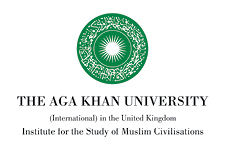Gianluca Parolin
Professor Gianluca Parolin once aspired to be a diplomat but took a sharp left turn into comparative law after realising he was far more fascinated by legal diversity than by pushing government envelopes. Today, he's a professor at the Aga Khan University in London, where he teaches Islamic law, both pre-modern and contemporary – often using a whiteboard as a playground for experimental diagrammes or improvised games of hangman, playing clips from TV series, or getting students to do the occasional fuqaha role-play.
He holds a PhD in Public Law from the University of Turin, though he was more often found in warmer climates, tucked into language classrooms studying Arabic under the ever-convenient label of 'fieldwork.' His research explores how deep-seated normativities—those quiet, sticky structures of shoulds and oughts—are built and conveyed in language, visuals, and cultural patterns. He has a particular soft spot for crime fiction, courtroom dramas, and the odd constitutional translation.
His latest project traces how the revolutionary ideals of liberal constitutionalism were vernacularised in the Eastern Mediterranean, following the threads of Greek, Turkish, and Arabic words as they wove a shared legal-political lexicon in the late Ottoman world. He also co-hosts a podcast featuring conversations with both emerging and 'differently young' scholars on sharia, ideas, and the pleasures of disagreement.
When he's not writing, Gianluca is likely bingewatching Egyptian television dramas, coaxing phalaenopsis orchids and succulents to thrive in a North-facing window, or baking structurally ambitious sourdough loaves. He believes academia should be accessible, joyful, and just a little bit weird—much like the legal diversity he loves to explore.
Research interests
- Law and popular culture, especially in Egypt
- Islamic law and its appropriation in modern legal systems
- Legal discourse, semiotics, and genre in Arabic texts
- Citizenship, constitutionalism, and legal reform in the Arab world
- Comparative legal history and colonial governance in SWANA
Selected publications
- Parolin, G. (2009), Citizenship in the Arab World, Amsterdam University Press
- Parolin, G. (2024), “Becoming (False) Friends: Linguistic Practices and Source Access in Malta", Journal of International and Comparative Law, 11(2), 213–234.
- Parolin, G. (2024), “An Appalled Ghost Guiding Readers Across Semiotic Fault Lines: The Contribution of Literature to the Appreciation of Legal Change", Asiatische Studien / Études Asiatiques, 78(3): 535–554.
- Parolin, G. (2024), “A Second Violation of the Sharia Provision. The Supreme Constitutional Court of Egypt's Ruling of 12 May 2013", Arab Law Quarterly, 1–23.
- Parolin, G. (2023), “Social Media Activism in Egyptian Television Drama: Encoding the Counter-Revolution Narrative", in Middle Eastern Television Drama: Politics, Aesthetics, Practices, Routledge, 67–87.
- Parolin, G. (2021), “'Modern' Law and Its Subjects in Tawfîq al-Ḥakîm's Diary of a Country Prosecutor (1937)", Journal of Arabic and Islamic Studies, 21: 55–77.
- Parolin, G. (2020), "Why Only Religious (In)Equality? A Gramscian Reading of Traditional Intellectuals and the 'Citizenship' Debate in Egypt", Electronic Journal of Islamic and Middle Eastern Law, 1–17.
- Parolin, G. (2022), “The Great Divide in Legal Discourse: Towards a Global Historical Ontology of the Concept of Positive Law" (with Baudouin Dupret), in State Law and Legal Positivism, BRILL, 5–32.
Personal Links
Gianluca Parolin AKU ISMC
Gianluca Parolin LinkedIn
Contact
gianluca.parolin@aku.edu


